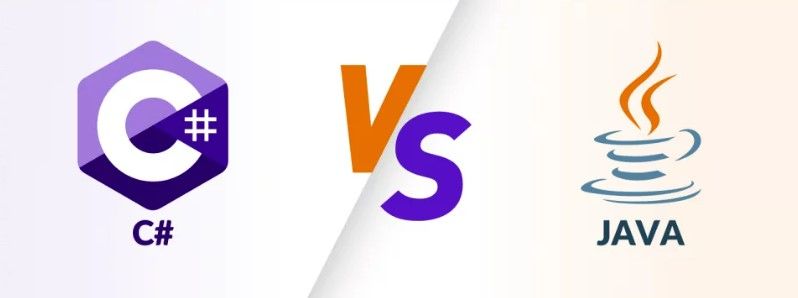Object oriented languages, C# and Java: which is better?

Both C# and Java have a humongous number of libraries that can be used to build an application from start to finish for desktop, web, mobile applications, games and many more. Both object-oriented languages are backed by a huge community and fans, and well documented too. Maybe you’re just getting started with software development and learning to code (and wondering which language to begin with) or weighing two languages against each other to further your career. Somewhere down the line, you might wonder which you should study, C# or Java. Wherever you are in your programming journey, I’ll help you see the differences between C# vs. Java with this guide.
What is C#?
C# is a general-purpose programming language that first appeared in 2000 as part of Microsoft’s .NET initiative. It was designed for the Common Language Infrastructure (CLI)—an open specification developed by Microsoft and standardised by ISO and ECMA. C# applications are compiled into bytecode that can run on implementations of the CLI. The language is used to build full stack web apps, backend (API) applications, mobile apps with the Xamarin framework and now the newly added MAUI framework, games (like Temple Run 😉 – Over 500M downloads) and much more.
What is Java?
Initially released by Sun Microsystems in 1995, Java is a general-purpose programming language that was initially designed with a main goal of allowing developers to “write once, run anywhere.” Java applications are compiled into bytecode that can run on implementations of the Java Virtual Machine (JVM). Like CLI, JVM helps bridge the gap between source code and the 1s and 0s that the computer understands. It's now owned by Oracle and according to your problem solver (w3schools) more than 3 billion devices worldwide run java. Like C#, its used to build mobile applications, Desktop application, web application and much more.
A little more
The purpose of the two languages is the same, but it's important to remember that C# stems from Microsoft's desire to use its own "Java-like" language for the .NET Framework. Since C# is not built based on a brand-new idea, new features have been added and optimised to solve the problems that Microsoft developers first encountered when trying to build a platform on Visual J++. At the same time, the Java open-source community continued to grow, creating a technical arms race between the two languages. Here are a couple of comparison between C # and Java.
Safety Type:
- Java type-safety is safe, meaning that it allows a very powerful way of organising the type-space at run-time, through user-extensible class loaders
- C# type-safety is unsafe meaning that types can interact only through protocols they define, thereby ensuring each type's internal consistency
Pointers:
- Java does not support pointers
- In C# you can use pointers only in an unsafe mode
Backed by:
- C# is backed by tech giant Microsoft
- Java is backed by Oracle
Control For API:
- It’s controlled by an open community process
- Microsoft controls C# API
Runtime Environment:
- Java runs on JVM (Java Virtual Machine).
- C# runs on CLR (Common Language Runtime).
Designed for:
- Java programming language is intended to be run on a Java platform, by the help of Java Runtime Environment (JRE).
- The C# programming language is designed to be run on the Common Language Runtime (CLR).
Verdict
I could be biased with this one, but I personally enjoy C# and find it to be slightly nicer language, as the designers of C# had a few years to see where Java went wrong with its design before committing to C# 1.0. But then again, you have Kotlin for JVM, which has all C# has to offer and more.
Java also has multiple inherent advantages over C# when it comes to cross-platform applications. Like everything in software engineering, choosing one over the other is nothing but a trade-off, and you must decide, what is important to you and is more suitable for the problem which you are trying to solve.
At the end of the day both are tools which are used to solve a problem, and like any other it all depends on you as a developer how you will use the tool to solve the problem. It’s a decision based on ease of usage, application requirement and platform support and maintenance.
